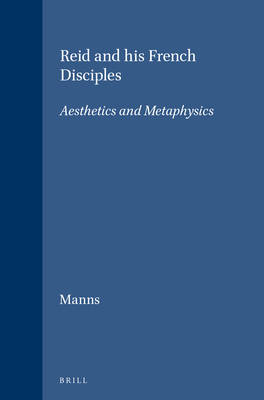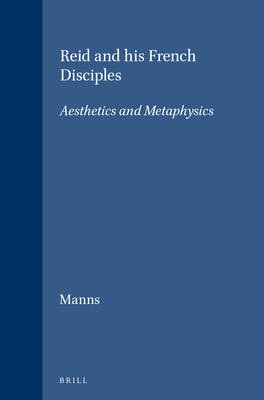
Je cadeautjes zeker op tijd in huis hebben voor de feestdagen? Kom langs in onze winkels en vind het perfecte geschenk!
- Afhalen na 1 uur in een winkel met voorraad
- Gratis thuislevering in België vanaf € 30
- Ruim aanbod met 7 miljoen producten
Je cadeautjes zeker op tijd in huis hebben voor de feestdagen? Kom langs in onze winkels en vind het perfecte geschenk!
- Afhalen na 1 uur in een winkel met voorraad
- Gratis thuislevering in België vanaf € 30
- Ruim aanbod met 7 miljoen producten
Zoeken
Omschrijving
The book opens with the most detailed account yet of Thomas Reid's expressionist aesthetic theory, integrating it thoroughly into his metaphysical, epistemological, and metaphilosophical viewpoints, each of which is examined closely in its turn. The book then traces out the influence which Reid, an eighteenth-century Scottish thinker, exercised on nineteenth-century French philosophy, an influence which proves considerable.
Victor Cousin, the most significant philosophical figure in post-Napoleonic France, was profoundly impressed by Reid' s thinking. The author demonstrates the depth and extent of his dependence in epistemological, metaphysical, and aesthetic matters.
He then pursues Cousin's (hence Reid's) legacy through three succeeding generations of French academics and intellectuals, focusing throughout on the development of the expressionist aesthetic. Principal among these heritors are Théodore Jouffroy, Charles Lévêque, and Sully-Prudhomme.
Victor Cousin, the most significant philosophical figure in post-Napoleonic France, was profoundly impressed by Reid' s thinking. The author demonstrates the depth and extent of his dependence in epistemological, metaphysical, and aesthetic matters.
He then pursues Cousin's (hence Reid's) legacy through three succeeding generations of French academics and intellectuals, focusing throughout on the development of the expressionist aesthetic. Principal among these heritors are Théodore Jouffroy, Charles Lévêque, and Sully-Prudhomme.
Specificaties
Betrokkenen
- Auteur(s):
- Uitgeverij:
Inhoud
- Aantal bladzijden:
- 236
- Taal:
- Engels
- Reeks:
- Reeksnummer:
- nr. 45
Eigenschappen
- Productcode (EAN):
- 9789004099425
- Verschijningsdatum:
- 1/01/1994
- Uitvoering:
- Hardcover
- Formaat:
- Genaaid
- Afmetingen:
- 162 mm x 247 mm
- Gewicht:
- 571 g

Alleen bij Standaard Boekhandel
+ 491 punten op je klantenkaart van Standaard Boekhandel
Beoordelingen
We publiceren alleen reviews die voldoen aan de voorwaarden voor reviews. Bekijk onze voorwaarden voor reviews.









